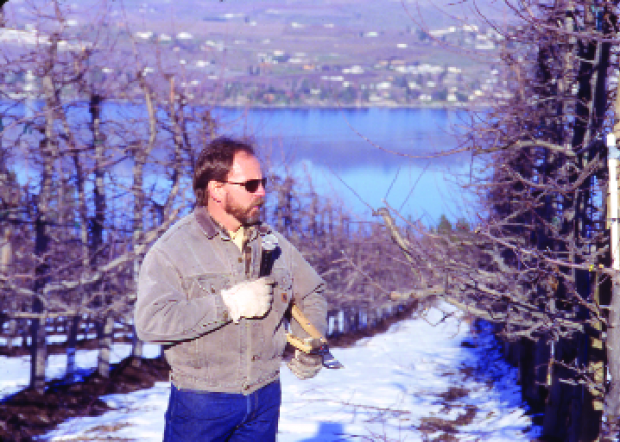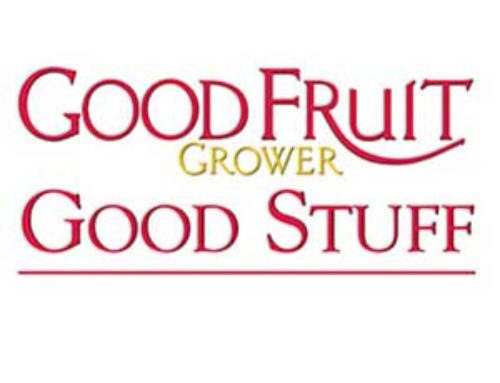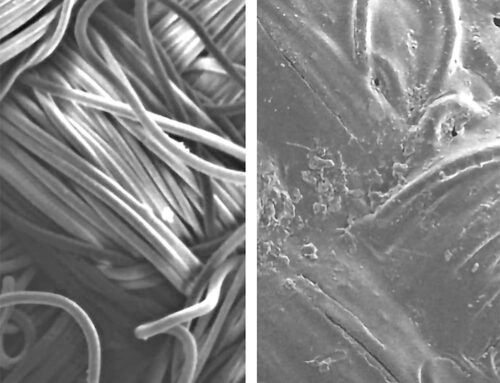
Ray Fuller of Stormy Mountain Orchard near Chelan, Washington, speaks to the IDFTA tour group in one of his high density organic orchard blocks.
While organic farming has become part of the agricultural mix, few growing tree fruits in the Pacific Northwest have as much long-time organic experience as Ray Fuller. Fuller’s Stormy Mountain Ranch—110 acres on a long slope overlooking Lake Chelan, Washington, from its south shore—is recognized as an example of successful organic growing. While most of the operation is in apples, there are 17 acres of Bosc and d’Anjou pears, as well as 35 acres of cherries.
The operation was visited during tours organized by the International Dwarf Fruit Tree Association in conjunction with its recent conference in Washington State. Fuller’s orchards are semi-isolated, thus have some protection from outside pest influences. Fuller said that while he can control pests in the trees, including cherry fruit fly, with Entrust or GF 120, his greatest pest is gophers. He cannot use poison lest chemicals contaminate the soil and render the fruit nonorganic. Maintaining fertility, particularly with pears, is also a challenge.
After working with alfalfa-based components and other materials, Fuller is now using Biogo or feather meal that contain about 11 percent nitrogen. Weed control is also an issue with organic production. Fuller’s approach is specific cultivation close to the trees and some hand removal. His cherries have some bacterial canker, a factor of site and variety unrelated to organic production. Lapins are particularly susceptible.
Replant issues
The benefits of soil fumigation when replanting are so great that Fuller is considering leaving sites fallow for a year after fumigation in order to ensure newly planted trees will meet the legal qualifications of being grown where no chemicals have been used for three years prior to production. For the visitor, Stormy Mountain Orchards has the same appearance as a conventional orchard.
Gala and Red Delicious are the principal varieties with plantings of Ginger Gold, Ambrosia, Pinova, and Honeycrisp. While trees may seem slightly less vigorous, vigor is sufficient. A ten-year-old Bosc pear block planted 2 feet by 12 feet produced 53 bins per acre in 2004. While Stormy Mountain has done well, Fuller is concerned about the future of organic production and marketing as he believes supply may soon be more than the market can handle. He noted that prices this year are “too close for comfort” compared to prices for conventionally grown apples. However, a year ago, organic fruit brought a good premium




Leave A Comment